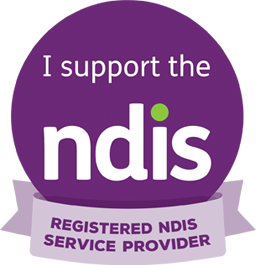What is NDIS?

Understanding Support and Plans under the NDIS
The National Disability Insurance Scheme (NDIS) is designed to help people get the support they need, so their skills and independence can be improved over time. The different stages of the planning process for the NDIS is graphically represented as under:
How can we help you manage your plan?
At Paramount Care, our mission is to enhance the quality of life for people with disability. We believe in client-centred approach that encourages individual planning and delivering high quality care built around the individual needs of our clients.
Stages in the Planning Process
Creating your Plan:
Goal setting is an important step and each of your supports and services converges to help you achieve these goals. The process starts with a plan meeting that is all about identifying your specific needs. Prepare for your planning meeting with complete information including details of any support that you currently receive. Remain focused on what you want for the future and how you can best be supported. Discuss the goals/activities/tasks you want to achieve with your Early Childhood Early Intervention (ECEI) Coordinator, Local Area Coordinators (LAC) or National Disability Insurance Agency (NDIA) planner. As the discussions move forward, you will better understand the kind of supports that you will receive from the NDIS, the community and other government support to help you achieve your goals. The goals in your plan will also be matched up with a combination of different funded supports: Core, Capacity-building and Capital.
Plan Approval: When you have an approved NDIS plan, you need to understand the different budgets and who can help you start using your plan, and how your plan is managed. Your funding is based on what is reasonable and necessary for your needs, in addition to the support provided by family, friends and other community and government services that you need to live your life and achieve your goals. You must only use your NDIS funding on supports and services that are related to your disability and will help you to achieve the goals in your NDIS plan.
Using your Plan: Once your plan is approved, you need to understand different budgets, who can help you start using your plan, and how your plan is managed. Families and carers of children aged 0-6 years who have an NDIS plan will work with an ECEI Coordinator. LACs are organisations that partner with the NDIA to deliver the NDIS by supplying an expert workforce with local knowledge of disability services and their local community LAC help them understand and use their plan.
Working with Providers: Managing your NDIS plan and ensuring you access the right support can be difficult and time-consuming. That’s where a support coordinator and a plan manager come in. Both can help you steer your NDIS journey in different ways. When your plan is managed by the NDIA (sometimes referred to as Agency-managed), you are able to choose from a range of NDIS registered providers. They claim the payment directly from your funding and the NDIA will manage your book-keeping and records of your spending.
NDIS providers are individuals or organisations that deliver support or product to a participant of the NDIS.
Support Coordinators: Support coordination is included in a participant’s plan if it is reasonable and necessary for the individual. Support Coordinators help participants to implement supports in their plan, including informal, government services, community activities and funded support. Support coordinators are funded through the NDIS to work with individuals who have high support needs or who don’t have access to a local area coordinator.
They will work with a participant to:
1. Assess and connect you with preferred providers
2. Negotiate services and their prices and develop service agreements with the providers
3. Liaise with any Plan Manager provider to establish the appropriate claim categories and attribute the correct amount of funds
4. Manage your NDIS Plan budget
Plan Managers: Participants can choose to have a registered Plan Management provider to manage their funding and budget for the supports in their plan. Where a participant requests a Registered Plan Management Provider (RPMP) to administer their plan, the NDIA will give effect to this request without it being subject to the reasonable and necessary test under s34 of the NDIS Act. A Plan Manager:
1. Helps you understand your plan and how to put into action.
2. They also assist in liaising and connecting you with the local service providers.
3. They receive invoices and pay providers for the supports you purchase, they prepare financial reports for you.
4. They create service agreements between you and your service providers.
5. Your plan manager will help you manage the financial side of implementing your plan and this gives you greater flexibility and control over the service providers you choose.
Why choose daily Living Care?
By helping with daily activities, our caregivers enable clients to maintain their normal daily routines. Hourly home care allows clients to use our caregivers on an hourly or as-needed basis. In the comfort of their home, with their pets, and a familiar environment, our clients receive the support they need to enjoy their regular activities and continue living well at home.
Prices
The cost of these services will be covered as per your NDIS plan.
Consent
We get written consent from clients before providing any service.
Nursing Care
For patients with special needs, we also offer home based nursing care.
